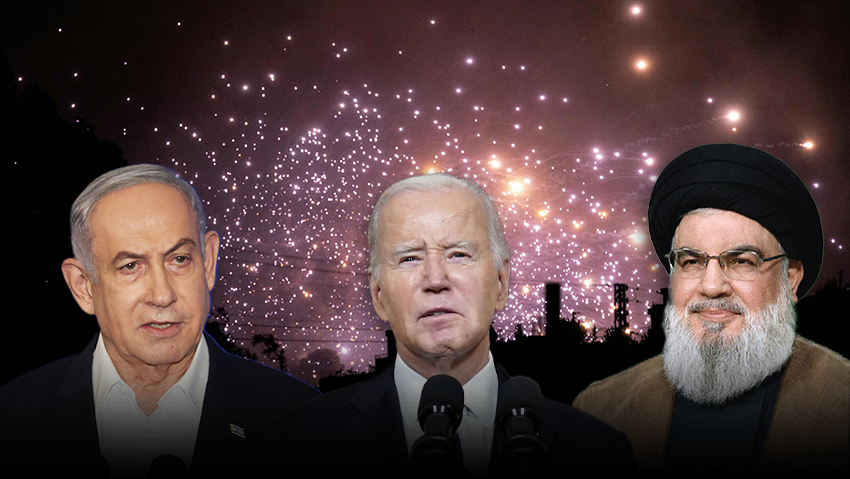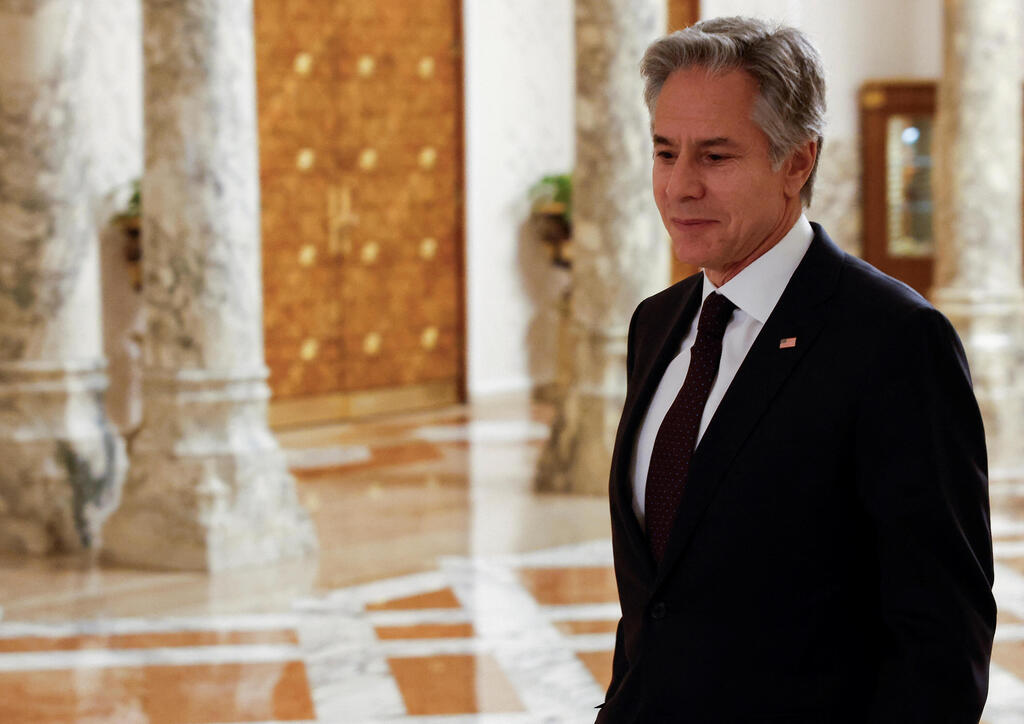Getting your Trinity Audio player ready...
Amid reports that Israel will stop its strikes on Hezbollah in order to negotiate a settlement to bring quiet on the northern border, a source close to Prime Minister Benjamin Netanyahu said Wednesday evening that Israel currently is not part of any negotiations.
"Prime Minister Benjamin Netanyahu and Minister Ron Dermer's red line is to kick Hezbollah to the north side of the Litani River. There are currently no negotiations," the source said.
The Chief of the General Staff at an Exercise in the North
(IDF)
Earlier on Wednesday Netanyahu in a statement: “I cannot detail everything we are doing, but I can tell you one thing – we are determined to return our residents in the north home safely. We are inflicting blows on Hezbollah that it never imagined. We are doing it with might; we are doing it with stratagems. I promise you one thing – we will not rest until they return home.”
Amid ongoing hostilities between Hezbollah and Israel, coupled with Northern Command Chief Major General Ori Gordin's threats to launch a ground offensive into Lebanon, international diplomatic efforts are intensifying to de-escalate tensions. The United States is spearheading efforts to lower the flames, although Washington acknowledges the limited influence of the Beirut government over Hezbollah. Concurrently, consultations are underway in Jerusalem to soon decide Israel's next steps in the conflict.
Prime Minister Benjamin Netanyahu has authorized negotiations, led by himself and Minister Ron Dermer, with the U.S. to consider a temporary cessation of attacks in Lebanon to facilitate cease-fire talks. Since the U.S. does not have direct communication with Hezbollah, negotiations on the opposite side are conducted indirectly through the Lebanese government and European entities, including the French. Simultaneously, Iran is also engaged in attempts to prevent a full-scale war. As an Israeli source noted, "We are approaching a crossroads of decisions on the war's trajectory."
U.S. initiative links Gaza, Hezbollah conflicts
The United States is spearheading a new diplomatic effort to end hostilities in both Gaza and Lebanon, linking the two conflicts as part of a single initiative, six sources familiar with the initiative told Reuters.
Details are being hammered out at the United Nations General Assembly in New York, according to two Lebanese officials, two Western diplomats, a source familiar with Hezbollah's thinking and a source briefed on the talks.
U.S. Secretary of State Antony Blinken said during an NBC interview on Wednesday regarding the northern escalation: "Israel has a real and legitimate problem. Hezbollah is a terrorist organization, and what everyone wants is a safe environment where people can simply go home, and children can return to school. That’s what Israel is looking for. The best way to achieve that is not through war, not through escalation."
"A diplomatic agreement, whereby forces withdraw from the border, creating a safe environment for people to return home, is what we are aiming for. While there is a legitimate issue here, we don’t believe war is the solution. That’s our focus now, including working with many partners here in New York at the UN General Assembly, the Arab world, Europeans, and others. It’s unlikely people will be able to return home if there’s a full-scale war," Blinken said.
When asked whether Israel should have provided the U.S. with advance notice about attempts to assassinate senior figures in Iran or about last week's operations, Blinken responded, "It's always nice not to be surprised by someone’s actions; it’s certainly preferable."
"Beyond our efforts to ensure that October 7 never repeats itself, and the attempt to ensure that civilians in Gaza – men, women, and children caught in Hamas’ terrible crossfire – are better protected and receive the help they need, we have also acted to prevent this war from spreading, escalating, and reaching other places. Ensuring that the situation in northern Israel and southern Lebanon does not escalate into a full-scale war is our current focus, and conversely, addressing the issue Israel faces," he said.
Regarding the potential for a cease-fire agreement with Hamas, Blinken remarked: "We have a draft agreement with 18 paragraphs. Fifteen of those have been agreed upon between Hamas and Israel. However, in recent weeks, Hamas simply has not been at the table, unwilling to engage with the remaining issues, which, if resolved, would finalize the deal. Israel will also have some tough decisions to make in the end, so we need to consider that."
Netanyahu: No country can accept the wanton rocketing of its cities. We can't either
(Video: GPO)
He said that President Joe Biden is determined to finalize the deal before his term ends. "He knows what he wants to achieve. He is determined to utilize the remaining months as president to reach the finish line. Our message, my message to anyone who perceives the U.S. as weak or indecisive – President Biden is here until January 20. He will use every day to advance the national interest."
Meanwhile, White House National Security Council spokesman John Kirby stated the U.S. is "very concerned" about reports of Hezbollah launching a missile at the Mossad headquarters this morning. However, Kirby noted Washington's belief that a diplomatic solution could reduce tensions along the Lebanon-Israel border.
In a CNN interview, Kirby also highlighted: "This again proves that Israel faces a legitimate threat from an Iran-backed terrorist organization. The U.S. continues to support Israel's right to defend itself. No nation should have to live with such threats just beyond its border, right next door."
Response in Lebanon
In Lebanon, Parliament Speaker Nabih Berri noted today that serious efforts are underway with international parties, including Americans, to halt what he terms "the recent Israeli escalation against Lebanon." In an interview with the Saudi newspaper Asharq Al-Awsat published in London, Berri stated that the next 24 hours would determine whether diplomatic efforts have led to a political solution or failed.
Berri was asked whether Hezbollah would be willing to separate the Gaza and Lebanon fronts, to which he replied that diplomatic efforts account for the inseparability of these arenas. The Lebanese official explained that those involved in de-escalation attempts are working on a solution based on proposals put forward by American envoy to the region, Amos Hochstein, even before the war in Gaza. Berri did not disclose the details of the solution but said it is the only feasible one.
A senior Lebanese official and the source familiar with Hezbollah's thinking told Reuters that Hezbollah was "open to any settlement that would include both Gaza and Lebanon."







